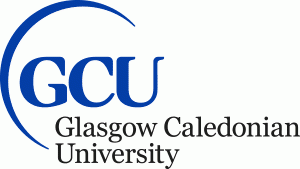 Glasgow Caledonian University has become one of the largest universities in Scotland with nearly 17,000 students. The University is made up of three academic schools in the areas of social sciences, health and science and technology. Our schools contain state-of-the-art laboratories and a number of renowned centres of excellence. GCU’s strong commitment to increasing access to study and lifelong learning is illustrated by the fact that the University has over 4,000 mature students and the largest number of part-time students in Scotland.
Glasgow Caledonian University has become one of the largest universities in Scotland with nearly 17,000 students. The University is made up of three academic schools in the areas of social sciences, health and science and technology. Our schools contain state-of-the-art laboratories and a number of renowned centres of excellence. GCU’s strong commitment to increasing access to study and lifelong learning is illustrated by the fact that the University has over 4,000 mature students and the largest number of part-time students in Scotland.
In TransSOL, research is carried out in the University’s leading research centre for the social sciences, the Yunus Centre for Social Business and Health. The Centre’s aims are:
- to conduct collaborative research in line with GCU’s mission of the ‘common weal’, thus aiming to improve the life chances of the poorest members of society internationally;
- to develop an original research programme around the notion of social innovation, microcredit and social business as social, economic and public health interventions;
- to develop new research interfaces across disciplines and areas of expertise, such as social policy, social business, microcredit, financial exclusion, public health and health economics; and
- to build a high-quality core programme of research in Glasgow combined with significant international collaborations, facilitated by GCU’s strong community links, its growing global network of partner Universities and the place of GCU in the ‘Grameen family’.
The Centre has recently been awarded a grant from the UK’s Medical Research and Economic and Social Research Councils to study the impact of social enterprise on the health and well-being of people and communities and is a partner in various projects funded by the European Commission, such as the FP7 project EFESEIIS (2013-2016) on social innovation and social enterprises across ten European countries.
Team members
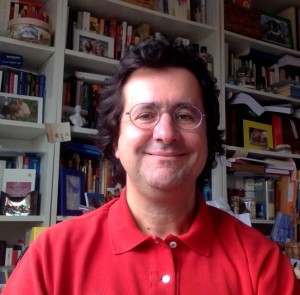 Simone Baglioni is the principal investigator of the UK team. He is a Reader in Politics in the Yunus Centre for Social Business and Health at Glasgow Caledonian University. He studied at the Universities of Florence, Sciences-Po Paris and Geneva. Before joining GCU, he worked as a researcher and lecturer at Bocconi University in Milan and before that as a research fellow at the Universities of Florence and Neuchâtel and as a lecturer at the University of Geneva. Simone has been a principal investigator in several international research projects: the YOUNEX project (EU FP7), the UNEMPOL project (EU FP5), the TSEP project (EU FP6), the IMISCOE network of Excellence (EU FP6), the ‘Somali refugees’ project (United Nations Funded Research) and the CID project (ESF and various European national research Councils). Currently he is a GCU principal investigator in the EU FP7 project Efeseiis. Simone has published extensively on issues of civil society, social movements and social cohesion. He serves as a project evaluator for various research-funding bodies, such as the European Commission, the Economic and Social Research Council (ESRC) in the UK, the Carnegie Trust for the Universities of Scotland, the Belgian Research Council and the Austrian Research Council.
Simone Baglioni is the principal investigator of the UK team. He is a Reader in Politics in the Yunus Centre for Social Business and Health at Glasgow Caledonian University. He studied at the Universities of Florence, Sciences-Po Paris and Geneva. Before joining GCU, he worked as a researcher and lecturer at Bocconi University in Milan and before that as a research fellow at the Universities of Florence and Neuchâtel and as a lecturer at the University of Geneva. Simone has been a principal investigator in several international research projects: the YOUNEX project (EU FP7), the UNEMPOL project (EU FP5), the TSEP project (EU FP6), the IMISCOE network of Excellence (EU FP6), the ‘Somali refugees’ project (United Nations Funded Research) and the CID project (ESF and various European national research Councils). Currently he is a GCU principal investigator in the EU FP7 project Efeseiis. Simone has published extensively on issues of civil society, social movements and social cohesion. He serves as a project evaluator for various research-funding bodies, such as the European Commission, the Economic and Social Research Council (ESRC) in the UK, the Carnegie Trust for the Universities of Scotland, the Belgian Research Council and the Austrian Research Council.
For up-to-date info, visit his staff page.
Olga Bios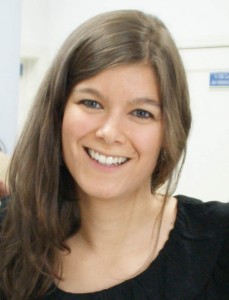 ca is a Lecturer in Social Business and Microfinance at the Yunus Centre for Social Business and Health. She holds a PhD in Economics from the University of Sheffield, an MSc in Development Economics and a BA (Hons) in Economics from the Autonomous University of Madrid, Spain. Olga has focussed on the study of deprivation and exclusion in advanced and developing economies such as the UK, Eastern Europe, Haiti, India, Bangladesh, Mexico and Uruguay. Her publications mainly focus on the analysis of innovative programmes and public policies for financial inclusion, social connectedness and the health and well-being of low-income and vulnerable groups of the population. Her academic work deals with both quantitative and qualitative analysis. Olga is a member of the Worldwide Economic Transformations research group based at the Autonomous University of Madrid and the Latin American Network of Development Studies.
ca is a Lecturer in Social Business and Microfinance at the Yunus Centre for Social Business and Health. She holds a PhD in Economics from the University of Sheffield, an MSc in Development Economics and a BA (Hons) in Economics from the Autonomous University of Madrid, Spain. Olga has focussed on the study of deprivation and exclusion in advanced and developing economies such as the UK, Eastern Europe, Haiti, India, Bangladesh, Mexico and Uruguay. Her publications mainly focus on the analysis of innovative programmes and public policies for financial inclusion, social connectedness and the health and well-being of low-income and vulnerable groups of the population. Her academic work deals with both quantitative and qualitative analysis. Olga is a member of the Worldwide Economic Transformations research group based at the Autonomous University of Madrid and the Latin American Network of Development Studies.
For up-to-date info, please visit her staff page.
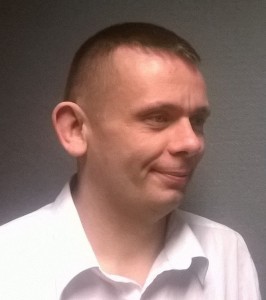 Tom Montgomery is a researcher in the UK team. He holds an MA (Hons) in Politics from the University of Glasgow, an MSc in Political Research from the University of Strathclyde and he is currently completing his PhD, which examines the role of social innovation in addressing youth employment issues in Glasgow and the west of Scotland, at Glasgow Caledonian University. His academic focus is on the impact of the political context on socially innovative organisations and young people. Tom has previously worked with public, private and third sector stakeholders as well as the general public across a number of initiatives focussed upon education, employability and health.
Tom Montgomery is a researcher in the UK team. He holds an MA (Hons) in Politics from the University of Glasgow, an MSc in Political Research from the University of Strathclyde and he is currently completing his PhD, which examines the role of social innovation in addressing youth employment issues in Glasgow and the west of Scotland, at Glasgow Caledonian University. His academic focus is on the impact of the political context on socially innovative organisations and young people. Tom has previously worked with public, private and third sector stakeholders as well as the general public across a number of initiatives focussed upon education, employability and health.
Mich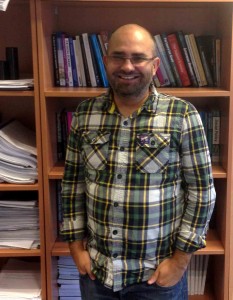 ael Roy is a Lecturer in Social Business at the Glasgow School for Business and Society and the Yunus Centre for Social Business and Health at Glasgow Caledonian University (GCU), UK. An economic sociologist and public policy specialist, Michael is particularly interested in how community-led ‘bottom-up’ action, particularly by social enterprises and other civil society actors, can work to address poverty, social exclusion and the wider social determinants of health. Michael serves as Programme Leader for GCU’s flagship Masters in Science (MSc) programme in Social Business and Microfinance, and, since, 2013, has been a Director of the EMES Network, the world’s largest and longest established research network on the topic of social enterprise and social entrepreneurship.
ael Roy is a Lecturer in Social Business at the Glasgow School for Business and Society and the Yunus Centre for Social Business and Health at Glasgow Caledonian University (GCU), UK. An economic sociologist and public policy specialist, Michael is particularly interested in how community-led ‘bottom-up’ action, particularly by social enterprises and other civil society actors, can work to address poverty, social exclusion and the wider social determinants of health. Michael serves as Programme Leader for GCU’s flagship Masters in Science (MSc) programme in Social Business and Microfinance, and, since, 2013, has been a Director of the EMES Network, the world’s largest and longest established research network on the topic of social enterprise and social entrepreneurship.
For up-to-date info, please visit his staff page.
